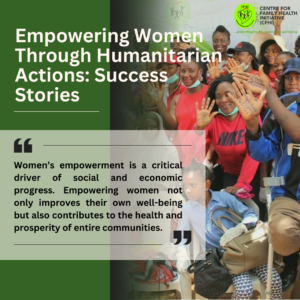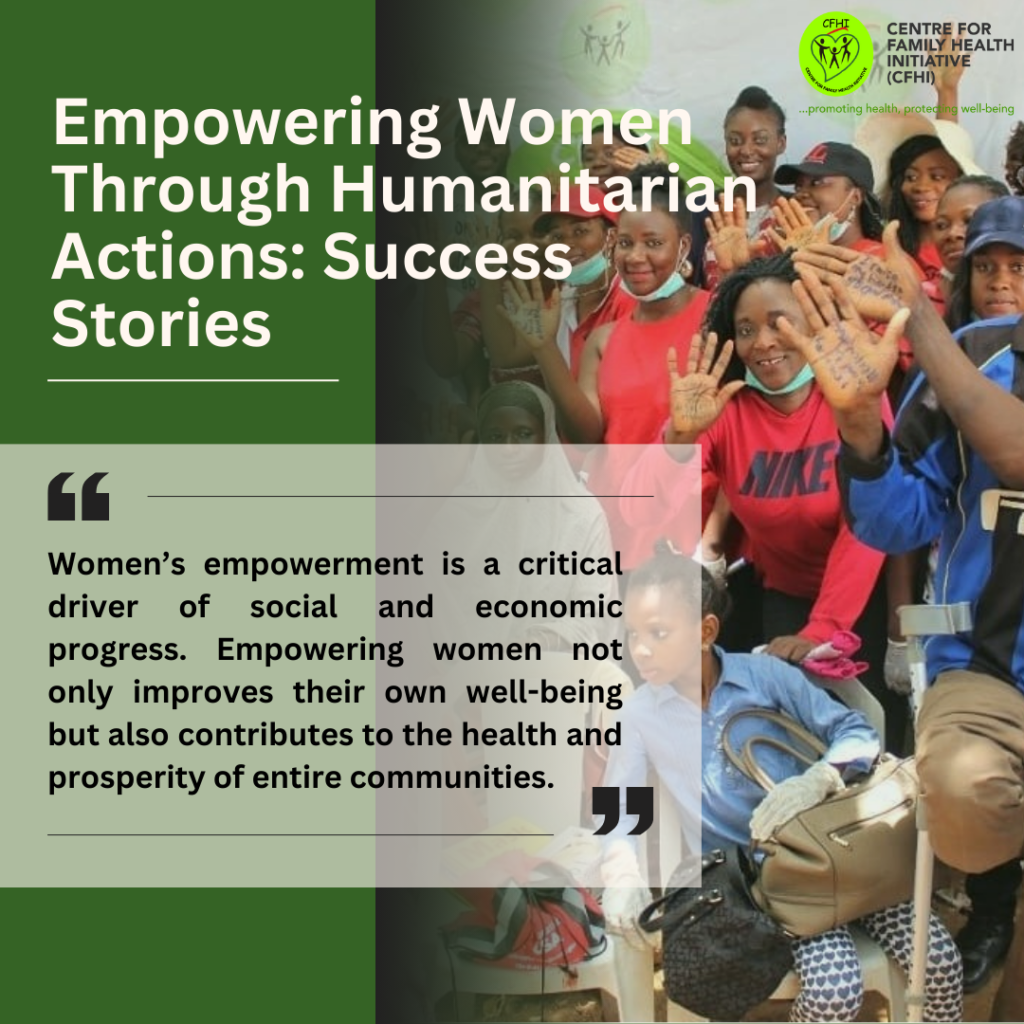The empowerment of women has become a central theme in global humanitarian efforts, with the recognition that gender equality is fundamental to achieving sustainable development. Organizations around the world are implementing diverse programs aimed at enhancing the economic, social, and health outcomes for women, particularly in vulnerable communities.
Women’s empowerment is a critical driver of social and economic progress. Empowering women not only improves their own well-being but also contributes to the health and prosperity of entire communities. According to the World Bank, when women are empowered, they are more likely to invest in their families, leading to better educational outcomes and improved health for future generations.
Economic empowerment is a foundational aspect of many humanitarian efforts aimed at women. Programs that provide skill development, financial resources, and entrepreneurial opportunities help women break the cycle of poverty.
The Centre for Family Health Initiative (CFHI) has been instrumental in addressing the socioeconomic challenges faced by vulnerable communities in Nigeria. Through strategic partnerships and interventions such as the REAP project, the 4GATES project, ACHIEVE project, and the MICSEP project, CFHI, in collaboration with the U.S Embassy, Abuja, Catholic Caritas Foundation of Nigeria. Institute of Human Virology, Nigeria (IHVN), and Global Philanthropy Alliance (GPA) has made significant strides in transforming lives, especially among vulnerable women, by providing them with the tools and resources necessary to break the cycle of poverty.
Speak Wednesday is an initiative of CFHI to address issues around gender-based violence and gender bias.
REFERENCES
1. World Bank. (2021). “Empowering Women: Key to Economic Growth and Social Development.” Retrieved from World Bank website.
2. UNESCO. (2020). “Education for Women and Girls.” Retrieved from UNESCO website.
3. Retrieved from https://www.cfhinitiative.org/ongoing-projects/.
4. Retrieved from (CFHI, n.d.)


